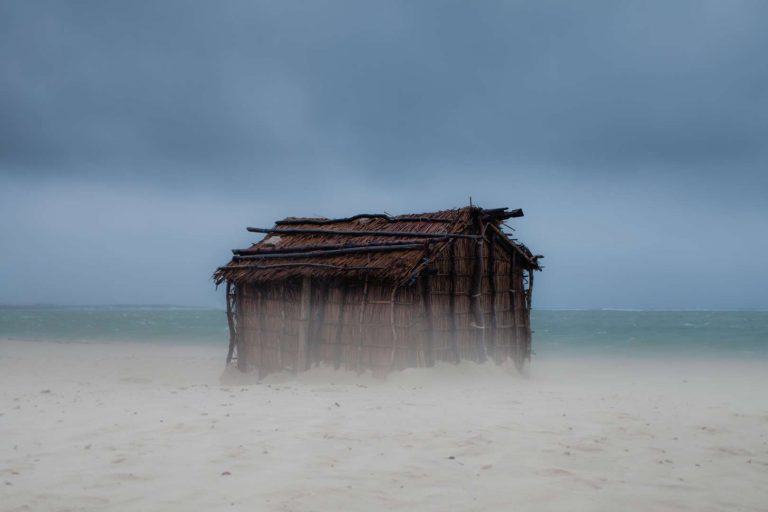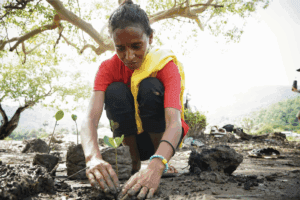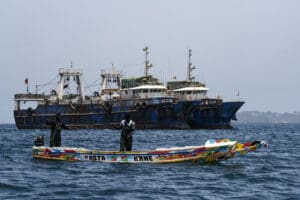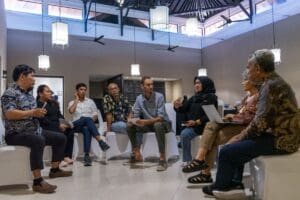New research published in the Journal of Disaster Risk Studies examines the community response in the Velondriake Locally Managed Marine Area (LMMA), southwest Madagascar, to cyclone Haruna in 2013, and how this response was strengthened by Blue Ventures’ integrated health-environment approach to community-based marine conservation.
The authors describe how a health-environment approach can contribute to improved community resilience to extreme weather events more broadly, enabling them to prepare for the impacts of climate breakdown.
On February 22nd 2013 tropical cyclone Haruna made landfall over the southwest coast of Madagascar, with heavy rain and wind speeds of around 150km/h, making it one of the most powerful cyclones that this region had experienced in more than 35 years. This resulted in significant loss of life, and damage to homes and infrastructure.
Coastal communities within the Velondriake LMMA rely almost exclusively on fishing for food and income, and the heavy wind and rain meant that families were unable to fish for two weeks – resulting in acute food shortages for many.
Flooding in the LMMA led to the contamination of water sources, which triggered outbreaks of diarrhoea and malaria, and also made the area inaccessible by road for over six weeks, preventing aid from reaching the communities.
Yet, in the days and weeks after the cyclone, the coastal communities within the LMMA who had been affected by this storm coordinated a rapid response to the disaster, ensuring that important information was collected and disseminated and that people’s immediate needs for shelter, food and medical treatment were met.
In 2007, in partnership with local communities, Blue Ventures integrated community health services into its programme of activities; activities that had culminated in the development of a locally led approach to conservation, and the region’s first LMMA. As a result, in the years preceding the cyclone, communities in the region had experienced dramatic improvements in community health care, including a strengthened network of community health workers; they had also laid the foundations for a local leadership committee, responsible for governing the LMMA. The actions of both of these groups were central to the community response to the cyclone.
The authors conclude that Blue Ventures’ integrated health-environment programme had made a positive contribution to the community’s response to the cyclone.
The recent IPCC special report on the ocean and cryosphere in a changing climate sets out with increasing certainty the threats that tropical coastal communities face as our climate changes: collapsing fisheries, rising sea levels and increases in the frequency and severity of tropical cyclones.
Very little has been written about how health-environment programmes support communities to respond to climate-related shocks and stressors, making this research an important contribution to the discussion on how to support coastal communities to become more resilient to climate breakdown.
Download the full article: Building community resilience to climate change: The role of a Population-Health-Environment programme in supporting the community response to cyclone Haruna in Madagascar
Please contact Blue Ventures’ Medical Director Vik Mohan – [email protected] – for more information about this research.




















